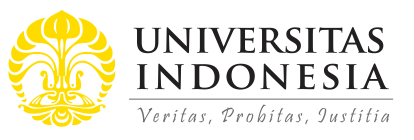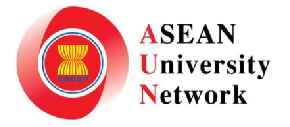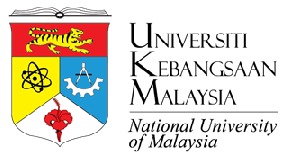
Abstract
The current paper introduces the Multilevel Community Engagement Model (MCEM) to help development agencies effectively work with families living in diverse communities in Pakistan. This model is grounded in family systems theory, participatory action research (PAR), and ecological systems theory. It is also informed by three empirical studies and the author’s reflections of his direct observations and experiences based on his work with development agencies. The MCEM uncovers important insights about the complex, dynamic, and reciprocal interactions among different groups of stakeholders at three different engagement levels (i.e., proximal, influential, and holistic). MCEM emphasizes a strong collaboration, effective coordination, and open communication among stakeholders within and between these levels. Development agencies can use and apply MCEM, which may help them adequately understand the needs of families living in diverse communities and address those needs in socially just manners. Additionally, MCEM honors community voice and encourages local knowledge, which may magnify the efforts of stakeholders’ groups who are involved in the community development process and situated within/between three different engagement levels and ensure the successful sustainability of development projects in Pakistan. Although, this model is grounded in research, which was carried out in Pakistan, it is intended to be adapted such that it can be transformed and applied in other countries/societies/cultures. The implications and limitations of MCEM are discussed.
References
Asim, S., & Riaz, A. (2020). Community engagement in schools evidence from a field experiment in Pakistan. Policy Research Working Paper, Education Global Practice, World Bank Group, 9280, 1-73. http://hdl.handle.net/10986/33941
Bronfenbrenner, U. (1979). The ecology of human development: Experiments in nature and design. Harvard University Press.
Bronfenbrenner, U. (1978). The social role of the child in ecological perspective. Zeitschrift fur Soziologie, 7, 4–20.
Darling, C. A., & Cassidy, D. (2014). Family life education. Working with families across the lifespan (3rd ed.). Waveland Press.
Duncan, S. F., & Goddard, H. W. (2017). Family life education: Principles and practices for effective outreach (3rd ed.). Sage Publications.
Freire, P. (2000). Pedagogy of the oppressed (1st ed.). Bloomsbury Academic.
Freeman, R. E. (1994). The politics of stakeholder theory: Some future directions. Business Ethics Quarterly, 4, 409-421. https://www.jstor.org/stable/3857340
Gilhooly, D., & Lee, E. (2017). The Karen resettlement story: A participatory action research project on refugee educational experiences in the United States. Action Research, 15, 132–160. https://doi.org/10.1177%2F1476750315625338
Government of Pakistan, Finance Division (2019-20). Pakistan economic survey. https://www.finance.gov.pk
Herr, K. (1995). Action research as empowering practice. Journal of Progressive Human Services, 6, 45–58. https://doi.org/10.1300/J059v06n02_04
Herr, K. (1999). Unearthing the unspeakable: When teacher research and political agendas collide. Language Arts, 77, 10–15. https://www.jstor.org/stable/41483020
Herr, K., & Anderson, G. L. (1993). Oral history for student empowerment: Capturing students' inner voices. International Journal of Qualitative Studies in Education, 6, 185–196. https://doi.org/10.1080/0951839930060301
Herr, K., & Anderson, G. L. (2015). The action research dissertation: A guide for students and faculty (2nd ed.). Sage Publications.
Herr, K. (2017). Insiders doing PAR with youth in their schools: Negotiating professional boundaries and healing justice. International Journal of Qualitative Studies in Education, 30, 450–463. https://doi.org/10.1080/09518398.2017.1303213
Khurshid, A. (2017). Does education empower women? The regulated empowerment of parhi likhi women in Pakistan. Anthropology & Education Quarterly, 48, 252–268. https://doi-org.proxy.lib.miamioh.edu/10.1111/aeq.12198
Khurshid, A. (2015). Islamic traditions of modernity: Gender, class, and Islam in a transnational women’s education project. Gender & Society, 29(1), 98–121. https://doi.org.proxy.lib.miamioh.edu/10.1177/0891243214549193
Martin, T. F. (2018). Family development theory 30 years later. Journal of Family Theory & Review, 10, 49-69. https://doi.org/10.1111/jftr.12237
McCarthy, J. F. (2014). Using community led development approaches to address vulnerability after disaster: Caught in a sad romance. Global Environmental Change, 27, 144–155. https://doi.org/10.1016/j.gloenvcha.2014.05.004
National Institute of Population Studies (2017-18). Pakistan demographic and health survey. Islamabad, Pakistan. http://nips.org.pk/
National Institute of Population Studies (2020). News and updates. http://nips.org.pk/
Olson, D. H., Defrain, J., & Skogrand, L. (2019). Marriages and families: Intimacy, diversity, and strengths (9th ed.). McGraw-Hill.
Pieczka, M. (2011). Public relations as dialogic expertise? Journal of Communication Management, 15, 108–124. https://doi.org/10.1108/13632541111126346
Raza, H. (2020). The role of reflexivity in participatory action research to empower culturally diverse communities in Pakistan. Journal of Rural and Community Development, 15, 71–88. https://journals.brandonu.ca/jrcd/article/view/1671
Raza, H. (2018). Participatory action research: Working beyond disaster towards prevention. Natural Hazards, 91, 117-131. https://doi.org/10.1007/s11069-017-3114-x
Raza, H. (2017). Using a mixed method approach to discuss the intersectionalities of class, education, and gender in natural disasters for rural vulnerable communities in Pakistan. Journal of Rural and Community Development, 12, 128-148.
https://journals.brandonu.ca/jrcd/article/view/1338
Raza, H., Sheraz, A., & Zafar, R. (2012a). Effect of Islamic perception on family planning practices. International Journal of Sustainable Development, 5, 85-96.
http://www.ssrn.com/link/OIDA-Intl-Journal-Sustainable-Dev.html
Raza, H., Wasim, B., Ahmad, F., Raza, Z., & Khan, N. (2012b). Impacts of family planning programmes on fertility in Pakistan. International Journal of Sustainable Development, 5, 97-114. http://www.ssrn.com/link/OIDA-Intl-Journal-Sustainable-Dev.html
Social Welfare Pakistan (2015-16). Annual plan 2015-16. https://www.pc.gov.pk/
Smith, S. R., & Hamon, R. R. (2017). Exploring family theories (4th ed.). Oxford University Press.
The Nation (2020). Pakistani govt. officially bans dowry now. https://nation.com.pk/
United Nations Department of Economic and Social Affairs (2019). World population prospects 2019. https://population.un.org/wpp/
United Nations Children’s Fund Pakistan (2019). Research and reports, generation unlimited. https://www.unicef.org/pakistan/what-we-do
United States Institute of Peace (2018). Devolution of power in Pakistan. https://www.usip.org/
Recommended Citation
Raza, Hassan
(2021).
Social Justice and Community Development: A Multilevel Community Engagement Model to Effectively Work with Families Living in Culturally-Diverse Communities in Pakistan.
ASEAN Journal of Community Engagement, 5(1), 25-48.
Available at: https://doi.org/10.7454/ajce.v5i1.1111







